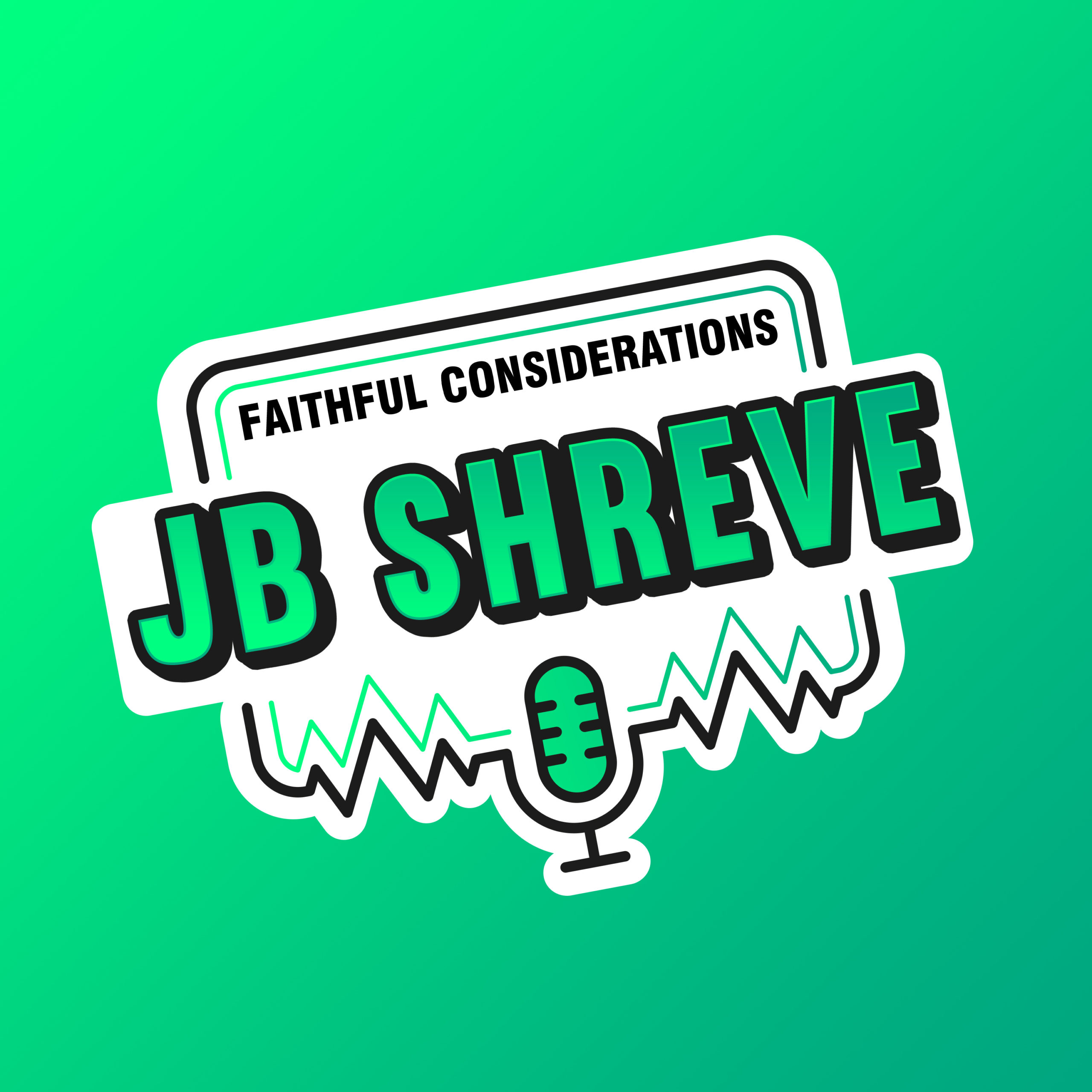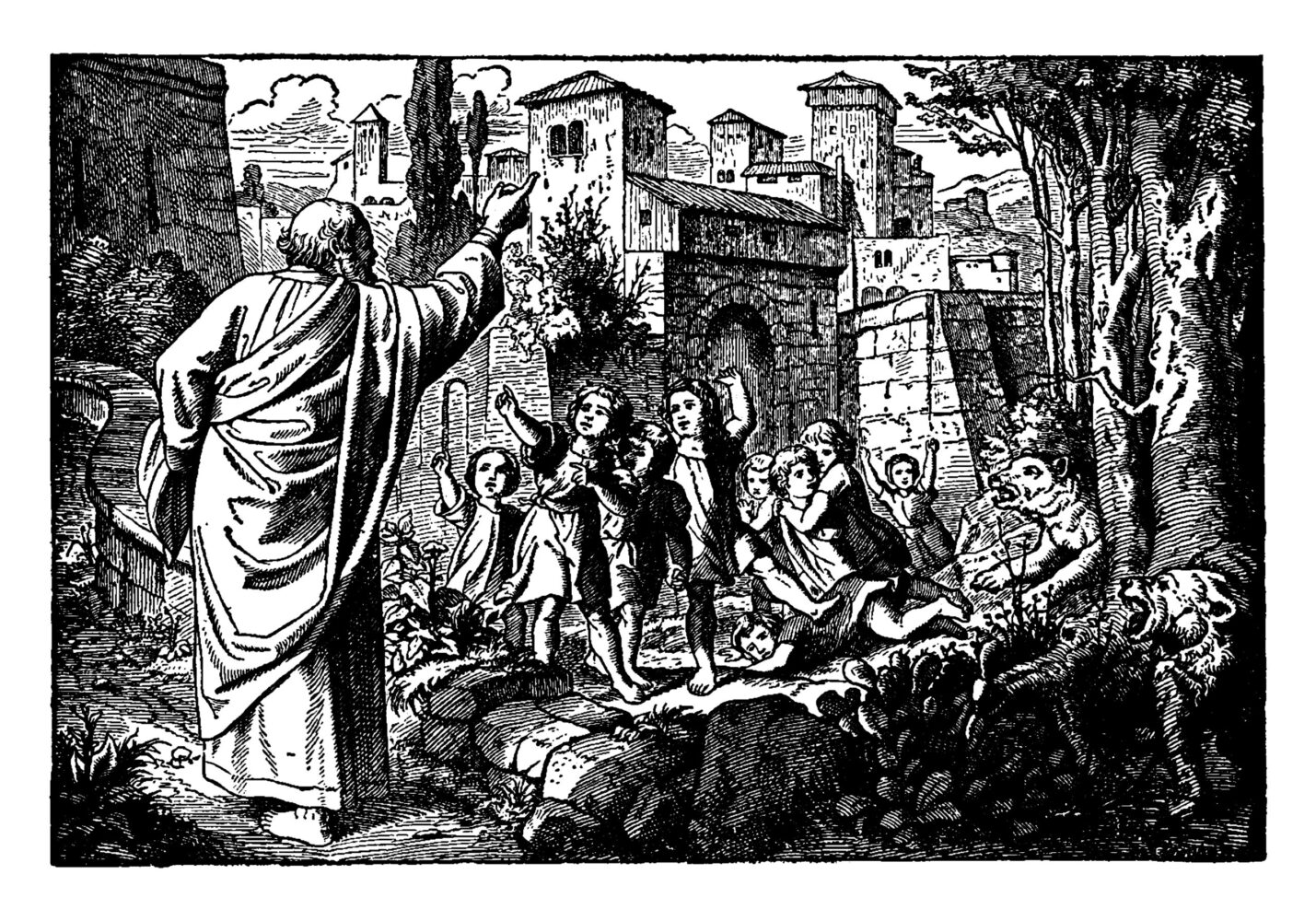Elisha’s prophetic mission lasted around half a century following the translation of Elijah recorded in 2 Kings 2. Together, the accounts from these two men’s lives take up nearly half the pages of 1 and 2 Kings. As the successor to Elijah, Elisha had his own struggles to confront and deal with as he managed the newly birthed school of prophets he and Elijah established. Elisha acted as a stabilizer in Israel as the nation descended into chaos.
Following are 12 things I learned while studying the life of Elisha.
- Elisha Came from a Family of Means
So he departed from there, and found Elisha the son of Shaphat, who was plowing with twelve yoke of oxen before him, and he was with the twelfth. Then Elijah passed by him and threw his mantle on him. 1 Kings 19:19
After Elijah encounters God on Mount Horeb, he makes his way to Elijah, who is anointed as the successor to Elijah. We do not know a lot about Elisha’s background, but he would not have been chosen if he had not been a good and godly man. Interestingly, the twelve-yoke oxen he works with signal that Elisha and his family had moderate wealth. While other figures throughout 1 and 2 Kings are seen starving, barely enduring famine, and crushed under the weight of debts, Elisha is a man of means.
- Elisha Prioritized Relationships
And he left the oxen and ran after Elijah, and said, “Please let me kiss my father and my mother, and then I will follow you. And he said to him, “Go back again, for what have I done to you?”So Elisha turned back from him, and took a yoke of oxen and slaughtered them and boiled their flesh, using the oxen’s equipment, and gave it to the people, and they ate. Then he arose and followed Elijah, and became his servant. 1 Kings 19:20-21
This is one of the starkest contrasts between the prophets Elisha and Elijah. While Elijah was a solitary figure usually found walking the land of Israel alone, we hardly ever find Elisha alone in the Bible. He placed a high priority on human relationships in his life, as is seen in this opening episode of how he honored his friends and family before he left for his life’s calling with Elijah. Later, we find people approaching Elisha, who recently failed to approach Elijah. Whereas Elijah reflected the nature of God in the crisis, Elisha reflected the nature of God, who cared for and held compassion for the people.
- Elisha Submitted Himself as a Servant to Elijah
Throughout his years with Elijah, Elisha was known as his servant. Even in later years, kings would identify him as “the one who washed Elijah’s hands.” Jesus said the greatest among us would make themselves the least of all. They would serve. Servanthood was the training ground of Elisha.
- Elisha Asked for a Double Portion
And so it was, when they had crossed over, that Elijah said to Elisha, “Ask! What may I do for you, before I am taken away from you?” Elisha said, “Please let a double portion of your spirit be upon me.” 2 Kings 2:9
Many read this famous final scene between Elijah and his servant Elisha and presume Elisha is requesting to operate at twice the level of Elijah’s prophetic functionality. That is not evidenced by what follows or by Elisha’s character up to this point. Elisha is requesting the rights of the firstborn. Frequently, a favored son would receive a “double portion” of the inheritance from their father. We see this with both Abraham and Jacob earlier in the Bible. Elisha requests that Elijah recognize him as his successor and give him a spiritual inheritance.
- Elisha Recognized and Prioritized the Demands of the Spirit Over the Flesh
Now the sons of the prophets who were at Jericho came to Elisha and said to him, “Do you know that the LORD will take away your master from over you today?” he answered, “Yes, I know; keep silent!” 2 Kings 2:5
As Elisha traveled with Elijah toward his ultimate departure in 2 Kings chapter 2, three times, this scene is repeated between him and the sons of the prophets. As a relational prophet, Elisha was warring against the tug of the spirit, pulling him and Elijah toward something that had never occurred before or since, as well as the natural grief of losing his friend and mentor Elijah. Elisha recognized he could grieve for the loss of his friend later, but now was the time to put the demands of the flesh to rest and focus on the priorities of the spirit.
- The Other Prophets Did Not Recognize the Full Calling of Elisha At First
After Elijah entered the next dimension by way of a fiery chariot and whirlwind (2 Kings 2:11), Elisha reconnected with the school of the prophets as a changed man. He wore the mantle of Elijah, and more significantly, he carried the grace and calling of Elijah to lead the prophets and guide Israel. For a time, many among the school of the prophets struggled to recognize Elisha in his new authority and role. Numerous instances demonstrate this, not only with the prophets but also with other people in Israel. Elisha was known as Elijah’s servant, and familiarity often prevented people from recognizing Elisha’s new authority and calling. As Jesus said, a prophet is often without honor in his own home.
- Elisha Was Approachable
Then the men of the city said to Elisha, “Please notice, the situation of this city is pleasant, as my lord sees; but the water is bad, and the ground barren.” 2 Kings 2:19
What is most interesting about this story of when Elisha healed the waters of Jericho is its timing. He and Elijah had walked through the same town only a few verses earlier, and the townspeople never once approached him and Elijah with this dire need. Why did they not ask Elijah to heal the waters at that time? Whereas Elijah was severe and consistently associated with the crisis in Israel, Elisha was known for his compassion and warmth.
- Elisha Had A Unique Way Of Hearing God
Several times in the stories of Elisha’s life, we learn how he heard God’s voice. In one instance, he calls upon a musician to play music for him before he gives a prophetic word (2 Kings 3:15). In several other instances, we see a unique capacity to hear and observe scenes between individuals he was not near. The king’s court in the Kingdom of Aram said that Elisha could listen to what the king talked about in his private bedroom. Elisha used this prophetic frequency to protect Israel and report on its enemies at different times. In this manner, the king of Israel often used Elisha as an intelligence service.
- Elisha Operated At Times Like A Social Worker
Repeatedly throughout the stories of 2 Kings, we find Elisha operating not only as an intelligence service for the king of Israel but also as a social worker for the common people of Israel. The miracles of the floating ax head, the widow’s oil, and others all demonstrate Elisha’s compassion for the people. These miracles also reveal the enormous strains that corruption and dysfunction were taking upon the people in the land. It is interesting how large a role financial debt plays in creating the needs and crises among the people. When the nation failed to follow the laws of God, anxiety, and crisis became the inevitable result.
- Elisha Fulfilled the Directions Given to Elijah
When Elijah met with God on Mount Horeb, God gave the prophet three specific tasks at the end of the transaction and revelation. He was to anoint Hazael, king of Syria. He was to anoint Jehu, king of Israel. And he was to make Elisha his successor. In an inexplainable twist, Elijah anointed Elisha but left the other two tasks for his successor to fulfill. In 2 Kings 8 and 9, we find Elisha completing this assignment when he anoints Hazael, king of Syria, and Jehu, king of Israel.
- Elisha Told A Lie
And Elisha said to him, “Go, say to him, ‘You shall certainly recover.’ However the LORD has shown me that he will really die.” 2 Kings 8:10
Hazael, an officer in the army of Syria, was sent by his king, Ben Hadad, to learn if Ben Hadad’s sickness would result in death. This is what Elisha tells Hazael. It is difficult to see this as any besides a lie. He directs Hazael to say one thing, but the truth is another thing. This is not the only time we see God blessing a deception. In Exodus, the midwives lied to Pharaoh and refused to kill the Hebrew babies. They lied, and the Bible explicitly tells us that God blessed them.
- Elisha Saw the World Differently
And Elisha prayed, and said, “LORD, I pray, open his eyes that he may see.” Then the LORD opened the eyes of the young man, and he saw. And behold, the mountain was full of horses and chariots of fire all around Elisha. 2 Kings 6:17
When the Syrian army surrounded Elisha and his servant, the servant walked out and saw the army surrounding them. He was immediately terrified. He notifies Elisha, and the prophet responds nonchalantly. Do not fear, for those who are with us are more than those who are with them. The servant only understood once Elisha prayed that his eyes would be opened to see the reality behind the reality. Elisha recognized the spiritual dimension behind the natural realities surrounding him. His calm manner when the servant notified him of the danger suggests this was often how Elisha saw the world in which he lived.
Listen and follow along with all the episodes and devotionals in the Kings and Prophets podcast series here.




